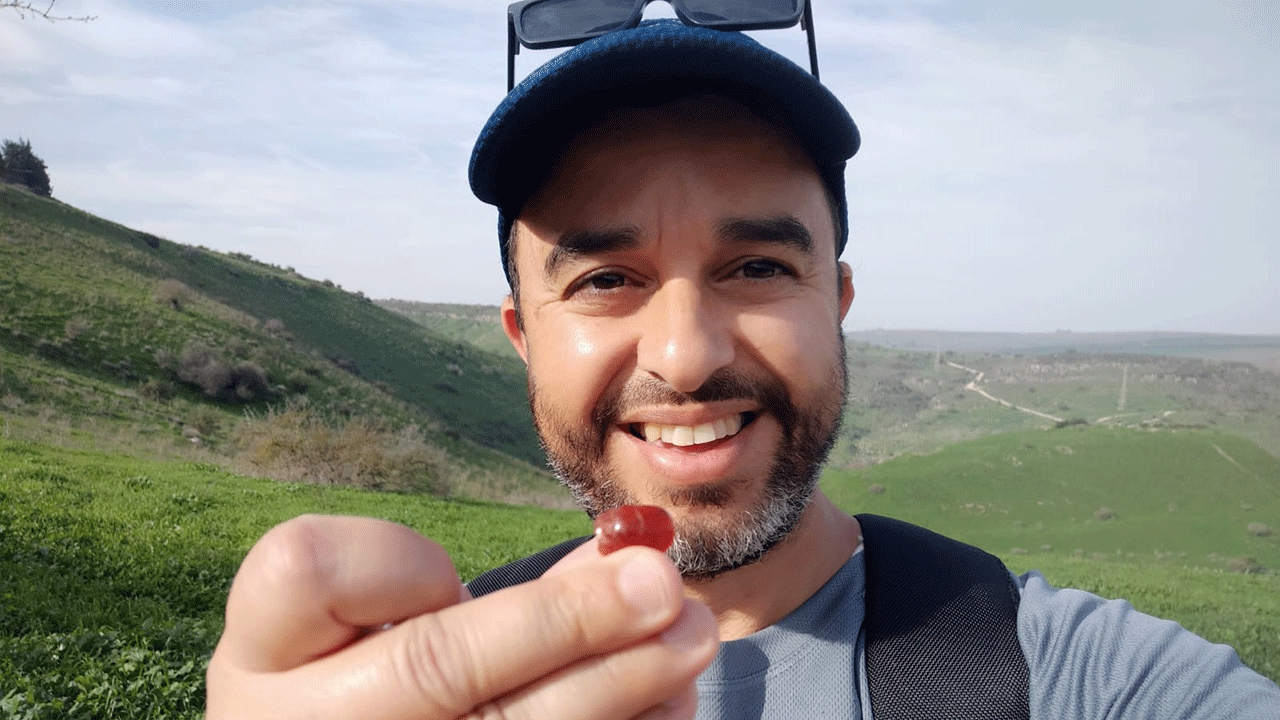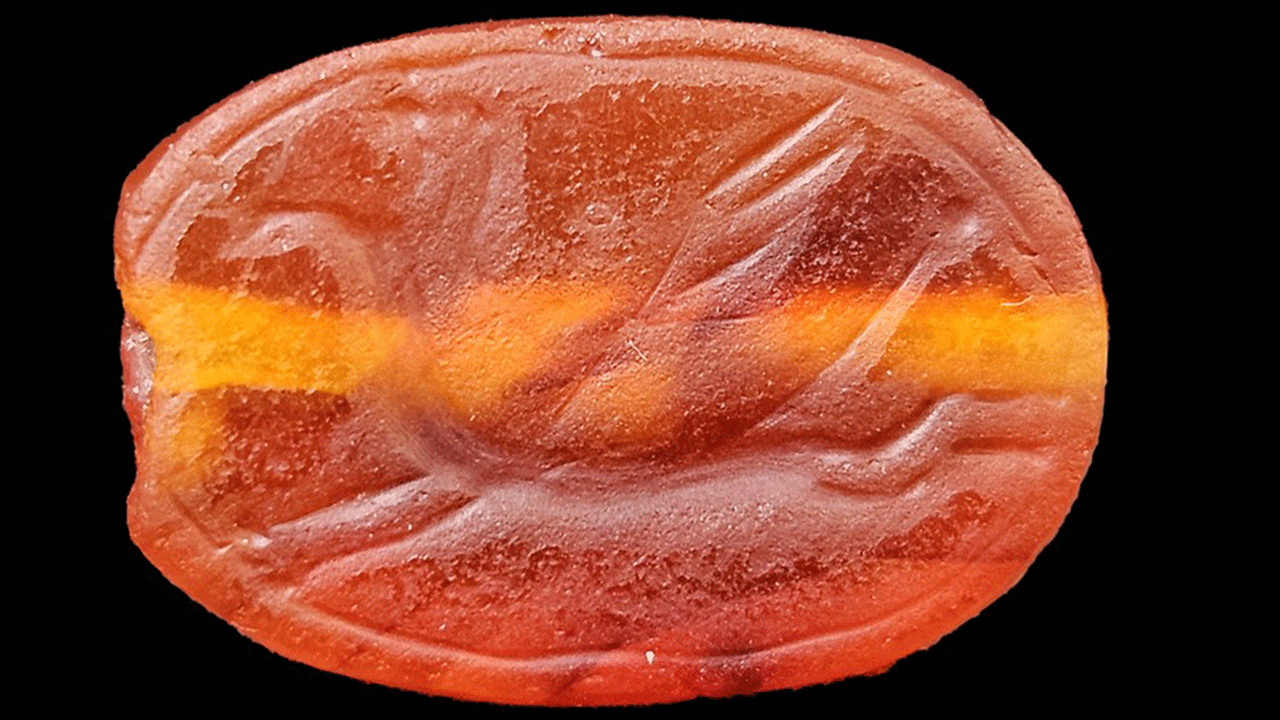Fox Corporation CEO Lachlan Murdoch, FOX News leadership travel to Israel
Fox Corporation Executive Chair and Chief Executive Officer Lachlan Murdoch, FOX News Media CEO Suzanne Scott and FOX News Media President Jay Wallace met with journalists at the network’s Jerusalem bureau.
A small sparkling item seen by a hiker in Israel turned out to be an ancient scarab dating back nearly 2,800 years.
Erez Avrahamov, a 45-year resident of Padoel, was hiking Tabor Stream Reserve in the Lower Galilee in Israel when he stumbled upon something unusual.
It could have easily been overlooked, measuring around the size of a fingernail, but once Avrahamov picked up the item and took a closer look, he knew he had found something special.

Erez Avrahamov was hiking when he found the scarab. (Erez Abrahamov)
"I had a two-day leave from the military and decided to take advantage of the sunny days for a trip," Avrahamov said in a press release. "During the trip, I saw something sparkling on the ground. At first, I thought it was a bead or an orange stone. After picking it up, I noticed engravings on it resembling a scarab. I contacted and reported the amazing find to the Israel Antiquities Authority."
While on the line with Nir Distelfeld of the Theft Prevention Unit at the Israel Antiquities Authority, Avrahamov was questioned about the item in his possession.
"I received a call from Erez, and I understood that he found something special," Distelfeld said in the press release.

The scarab seal dates back nearly 2,800 years. (Anastasia Shapiro, Israel Antiquities Authority)
"I told him to look closely at the other side – the flat side of the scarab he found – and check if it was engraved. Immediately I heard an exclamation of amazement over the phone, and he reported to me that he identified a figure," he added.
Scarab seals take the shape of a beetle, and were sacred to the Egyptians, symbolizing renewal and rebirth. The finding of the scarab suggests an Assyrian or Babylonian presence in the area.
"The scarab discovered at Tel Rekhesh may be from the period of the Assyrian rule and may indicate the presence of Assyrian officials (or perhaps Babylonian) at Tel Rekhesh during this period," Dr. Yitzhak Paz, an archaeologist at the Israel Antiquities Authority, said in the press release.
"The griffin appearing on the seal is a known artistic motif in Ancient Near Eastern art and is common on seals from the Iron Age. Considering the scarcity of finds discovered so far in the area of the citadel, and if indeed the seal can be dated to the late Iron Age based on iconographic considerations, it may be possible to link the seal to the Assyrian presence in the citadel of Tel Rekhesh, which may be a discovery of great significance!" the archaeologist explained.

Nir Distelfeld of the Israel Antiquities Authority said in a press release that Avrahamov was recognized for his good citizenship in reporting the discovery. (Anastasia Shapiro, Israel Antiquities Authority )
Avrahamov was shown gratitude for the good citizenship he displayed for quickly reporting his findings.
CLICK HERE TO GET THE FOX NEWS APP
"We thank Erez, who showed good citizenship and delivered the rare scarab to the national treasures of the Israel Antiquities Authority," said Distelfeld in the press release. "We awarded him a certificate on behalf of the Israel Antiquities Authority for demonstrating exemplary citizenship. Such a rare find can certainly expand our knowledge of the past."










































